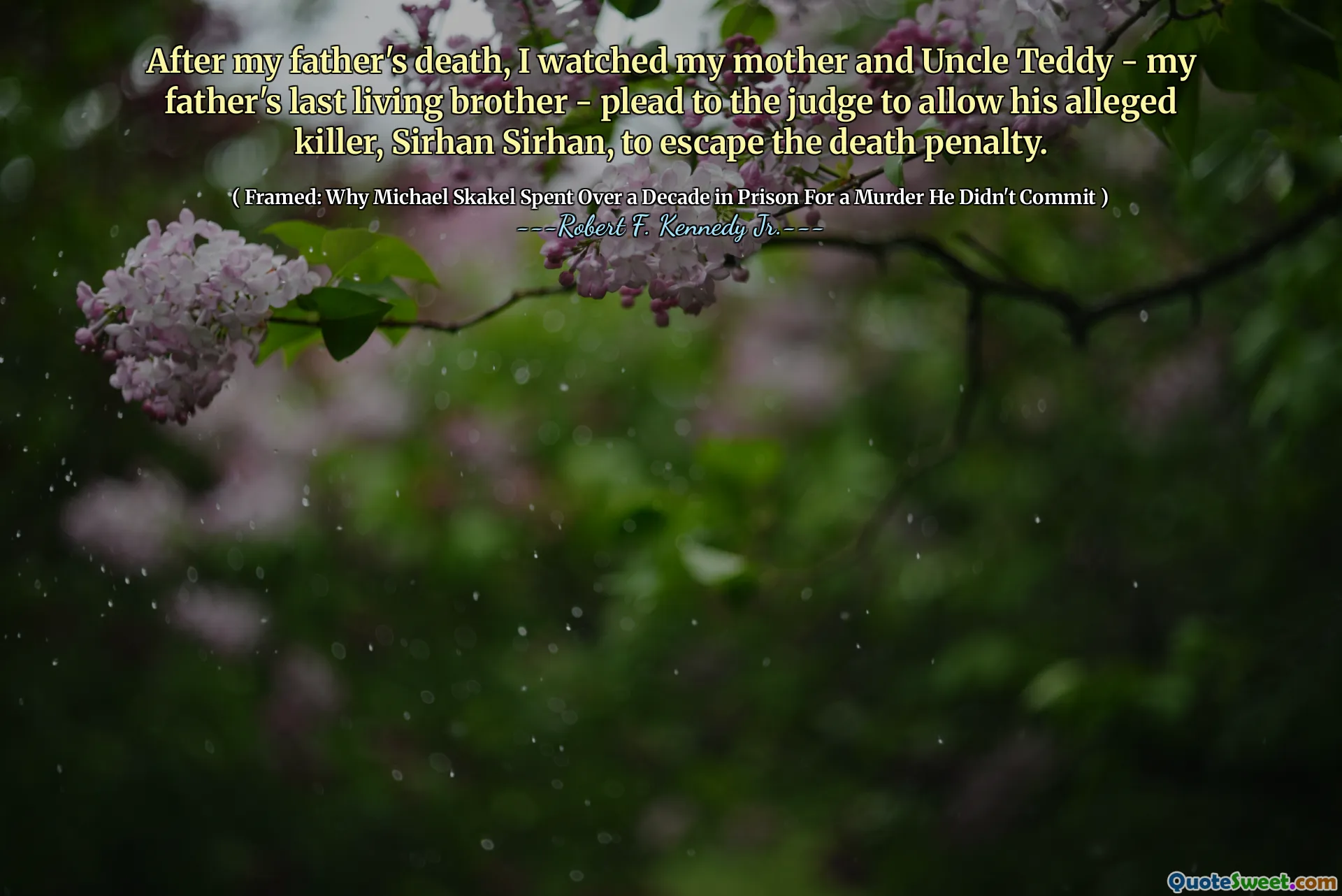
After my father's death, I watched my mother and Uncle Teddy - my father's last living brother - plead to the judge to allow his alleged killer, Sirhan Sirhan, to escape the death penalty.
This quote reflects a profound and personal moment involving grief, family loyalty, and the moral dilemmas that often accompany acts of justice. The narrator's father's death is a pivotal event, and witnessing close family members—his mother and Uncle Teddy—advocating for clemency demonstrates a struggle between the desire for justice and compassion. It prompts us to consider how grief can influence perceptions of right and wrong and how familial bonds shape our responses to tragedy. Uncle Teddy's plea to the judge to spare Sirhan Sirhan, the accused killer, underscores the complexities of justice, especially when emotions, familial ties, and moral values intertwine. Such moments reveal the depth of personal and collective grief that can lead individuals to advocate for mercy, highlighting the human capacity for compassion even in circumstances that seem to call for retribution. This scenario raises questions around the weight of guilt, the societal need for justice, and the role of mercy within the criminal justice system. It reminds us that justice is never purely black and white; it often resides within complex moral gray areas shaped by individual experiences, hopes for forgiveness, and the desire to find peace for loved ones. Ultimately, this quote encapsulates a poignant intersection of loss, love, and the ongoing moral debates surrounding punishment and forgiveness, reminding us of the human stories behind legal proceedings and the enduring impact of tragedy on family dynamics.






